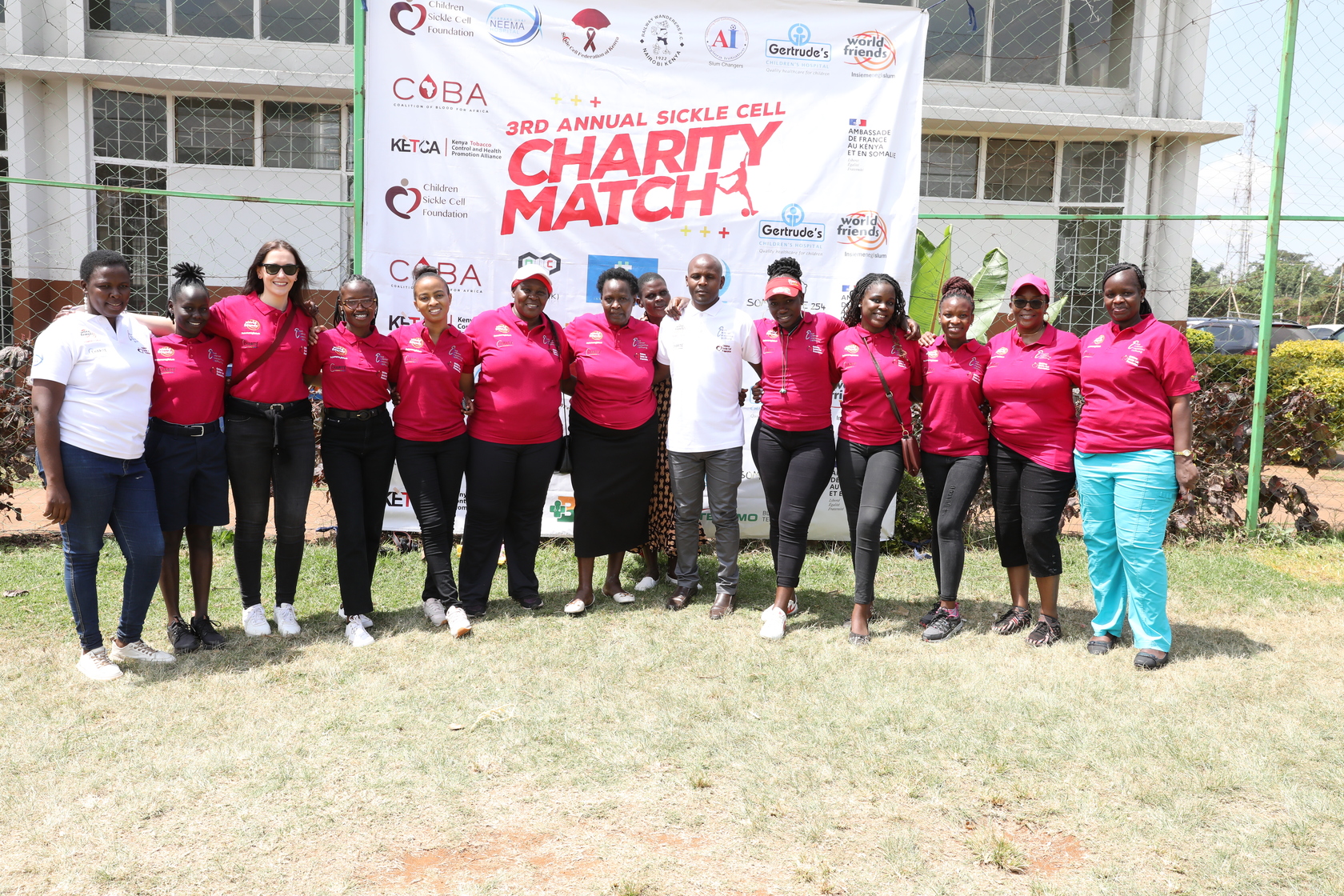
Kenya’s Children Sickle Cell Foundation scores big with charity event
Nairobi-based Children Sickle Cell Foundation (CSCF) held its third annual charity football match on Saturday at the Utalii Sports Club.
The event, organized in collaboration with World Friends, Baraka Health Net, and Ruaraka Uhai Neema Hospital, attracted hundreds of supporters from across Kenya, united in their mission to raise awareness and funds for children living with sickle cell disease.
The day was filled with spirited football matches, where corporate teams and stakeholders went head-to-head in fiercely contested games.
The final match pitted Utalii against Ayiera, with the former side going on to claim victory with a narrow 5-3 scoreline.
The day’s overall victors were however the children and families benefiting from the event’s proceeds.
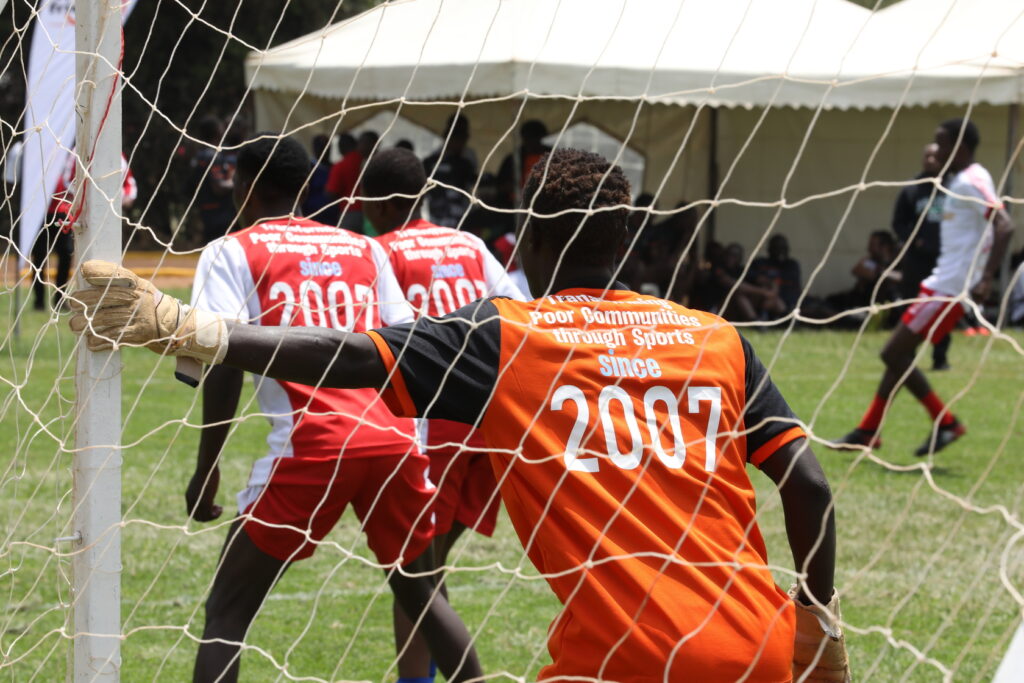
Besides football, other interactive events were also staged at the event. Families enjoyed a festive carnival-like atmosphere with face painting, live music, food stalls, and fun games for children, many of whom are directly impacted by sickle cell disease. The deeply personal touch made the event feel more like a celebration of resilience and hope than a mere fundraiser.
The event also provided attendees access to free sickle cell screening, with results available in just one hour. Medical experts and counsellors were available to give professional guidance to those whose tests returned positive.
Selina Ogweno, CEO of the Children Sickle Cell Foundation, hailed the impact the event was having on those living with the deadly disease.
“It’s about patients seeing their doctors and nurses playing for them. We’re not just treating them; we’re rooting for them, and we’re fundraising for them,” she said. This year, funds raised will go toward purchasing much-needed medication, particularly for financially strained families, and supporting the seven facilities CSCF works with.
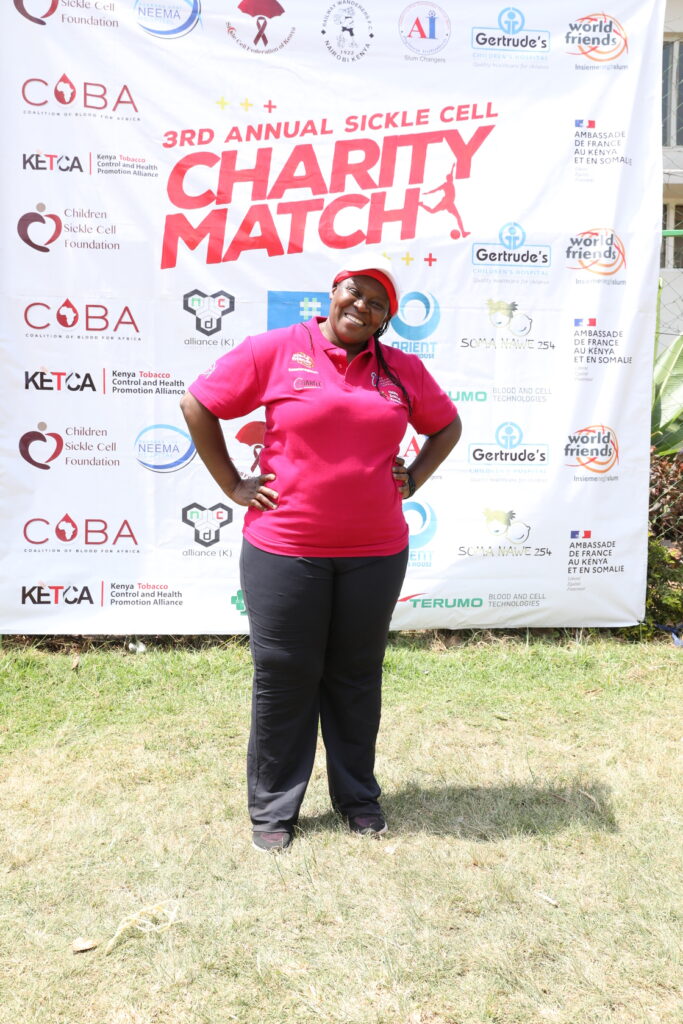
A Personal and Collective Mission
Among the partners was Dr. Serawit Bruck-Landais, Global Health Advisor for Eastern Africa and Somalia of the French Embassy, who reflected on the importance of the event.
“We’ve been working with the Children’s Sickle Cell Foundation for the last two years, supporting awareness through sports. It’s crucial not only for creating better knowledge about the disease but also for addressing policy questions. Early diagnosis and proper treatment are key to managing sickle cell disease,” she said.
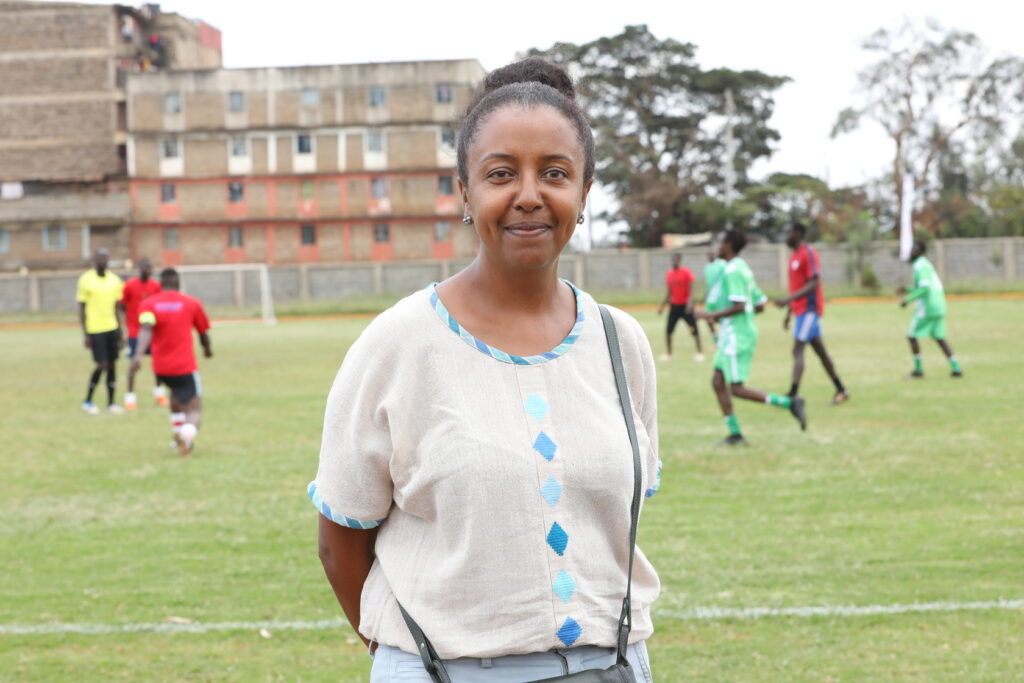
The French Embassy’s partnership helps open doors to global funding, which directly supports CSCF’s mission.
Dr. Maria Vittoria, a pediatrician at Ruaraka Uhai Neema Hospital, project manager of the World Friend’s non-governmental organization, and a member of the CSCF Board, emphasised the changing perceptions of sickle cell disease.
“In the last few years, people have started to understand that sickle cell is not a death sentence. Awareness shifts the narrative, making it something to care about rather than fear. This shift will encourage more people to seek treatment early, leading to better outcomes,” Vittoria explained.
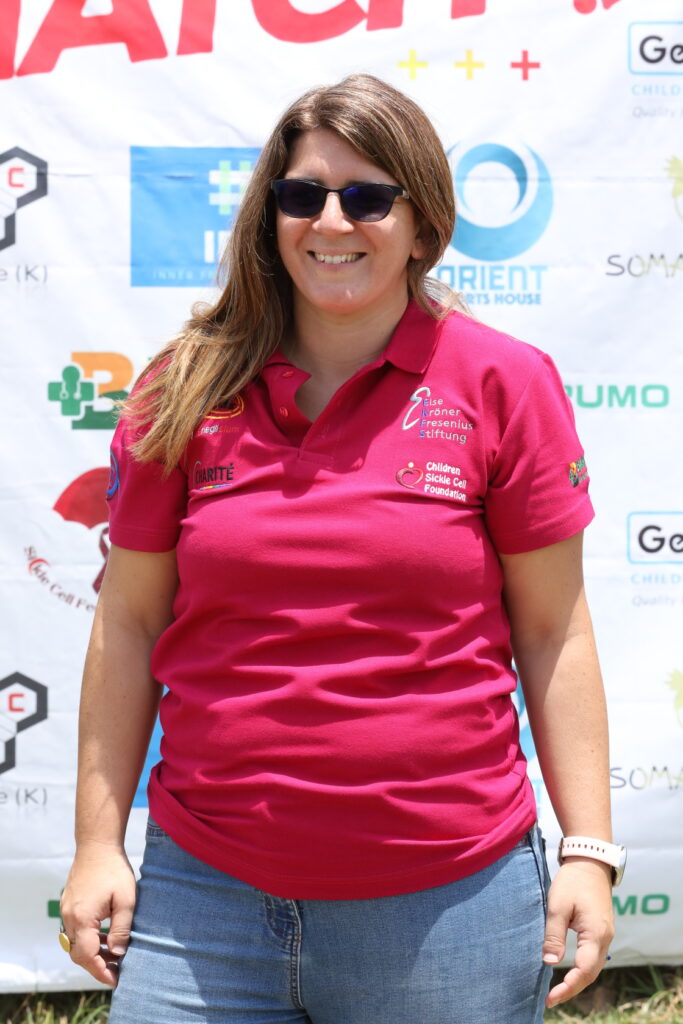
Gertrude’s Children’s Hospital was also one of the partners present.
“There is a project we’re having right now we are supporting with the Hydroxyurea. That project we support around 11 participants who are in the trial.” Edwina Oboke, Gertrude’s Children’s Hospital Clinical trial coordinator says. Hydroxyurea is in a class of medications called antimetabolites. Hydroxyurea treats sickle cell anemia by helping to prevent formation of sickle-shaped red blood cells.
“Children living with Sickle cell disease have been part of our core business in the Haematology Clinic and these children are one of our largest population in that clinic.” Hannah Wanjiku, Gertrude’s Children’s Hospital Research Management Officer says.
For parents like Everlyn Barasa, whose three sons—aged 40, 37, and 18—were diagnosed with sickle cell disease, the CSCF has been a lifeline.
“My first son was diagnosed when he was just one year old, and I was shocked to learn that the condition wasn’t curable. I thought he wouldn’t live long,” Barasa recalled.
Thanks to CSCF, Barasa’s sons have received essential treatments, including access to Hydroxyurea, which has been critical for their well-being.
“One of my sons even had a mild stroke due to financial challenges delaying his treatment. But with CSCF’s support, we have hope,” she said.
Barasa stressed the importance of parents staying vigilant with their children’s medication, particularly when they become disheartened.
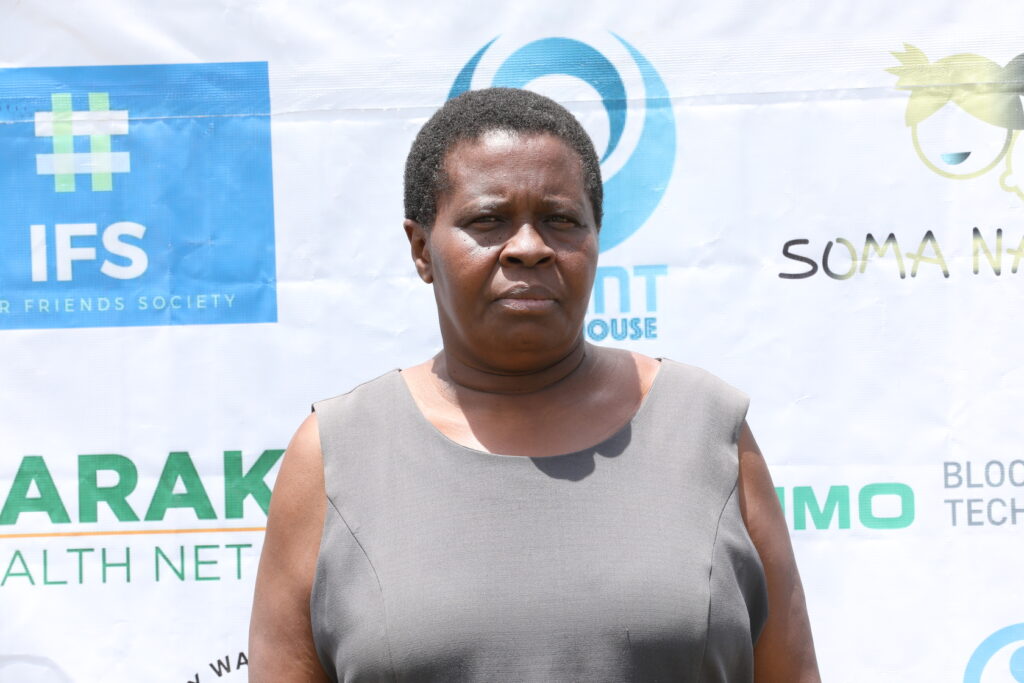
A Message of Hope
Fifteen-year-old Lucia Doreen, a sickle cell warrior, was thrilled to see so much support at the event.
“I’m happy people are here for us. Warriors like me need to stay strong, take water, go to clinics, and pray. We can live long and enjoy life,” she said with a smile.
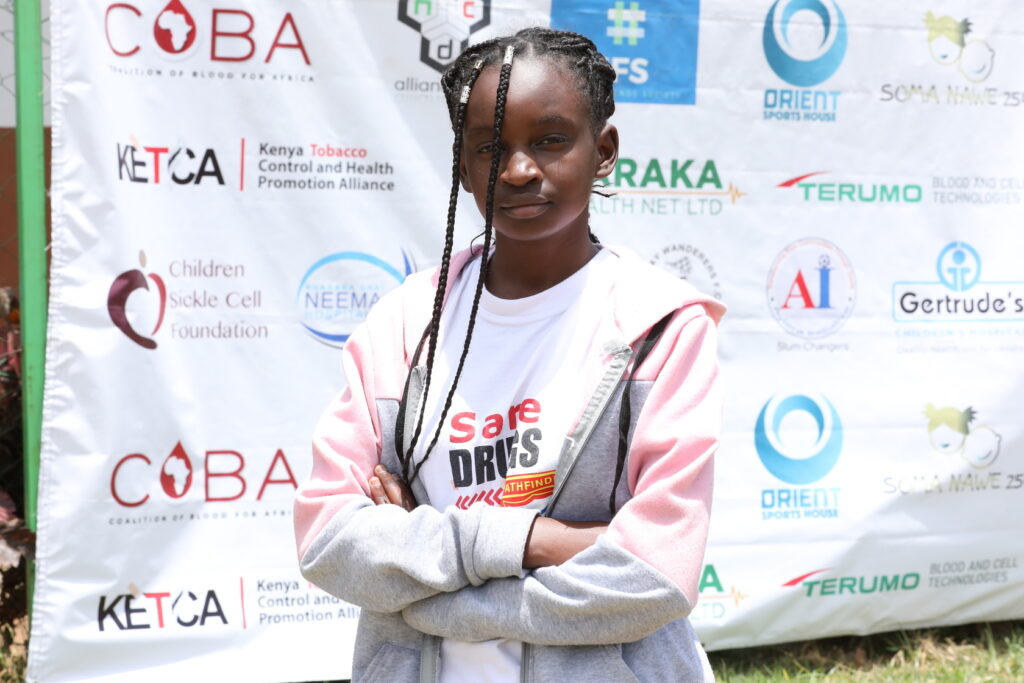
September is recognized globally as Sickle Cell Awareness Month, a period dedicated to raising awareness about the disease and celebrating the achievements of those living with sickle cell.
According to the World Health Organization, 5 percent of the world’s population carries the trait genes for haemoglobin disorders, with over 300,000 babies born annually with severe conditions such as sickle cell disease.
Figures from Kenya’s Ministry of Health show that about 14,000 children in the country are born with the disease each year, and without early diagnosis or proper treatment, 50-90 percent of those children perish before their fifth birthday.
Sickle cell disease is an inherited blood disorder that cause the red blood cells to contort into a sickle shape. The cells die early, leaving a shortage of healthy red blood cells (sickle cell anaemia) and can block blood flow causing pain (sickle cell crisis). Infections, pain and fatigue are symptoms of sickle cell disease.






